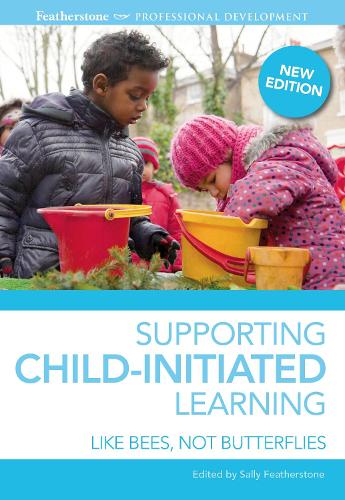
Supporting Child-initiated Learning: Like Bees, Not Butterflies
(Paperback)
Publishing Details
Supporting Child-initiated Learning: Like Bees, Not Butterflies
By (Author) Sally Featherstone
Bloomsbury Publishing PLC
Featherstone
1st April 2013
United Kingdom
Classifications
Professional and Scholarly
Non Fiction
372.21
Physical Properties
Paperback
144
Width 169mm, Height 244mm
256g
Description
Why is it that, when children play, some behave like butterflies, flitting around among the flowers of the activities on offer, landing for a moment before moving on to the next attractive flower (activity) while others behave with the single minded concentration of bees As children grow and learn, they acquire skills through play and practical activities. This recently acquired learning is tenuous and is secured through practice, repeating the skills in different contexts, with different people. Only then will learning be 'hard wired' for life. It is now evident that where children are able to select resources, play companions and activities for themselves, they can practise emerging skills and concepts by selecting the resources they need and using them in ways which are unique to them. This book, written by a group of experts in early years practice, explores the place and purpose of child-intitiated learning in high quality early years practice. Child-initiated learning is a key feature of the Early Years Foundation Stage.
Author Bio
Sally Featherstone has a wealth of experience as a teacher, head teacher and a local authority adviser and inspector. In recent years, alongside her activities in publishing, Sally has continued to build a national reputation as a trainer and consultant in the Primary and Early Years field.
